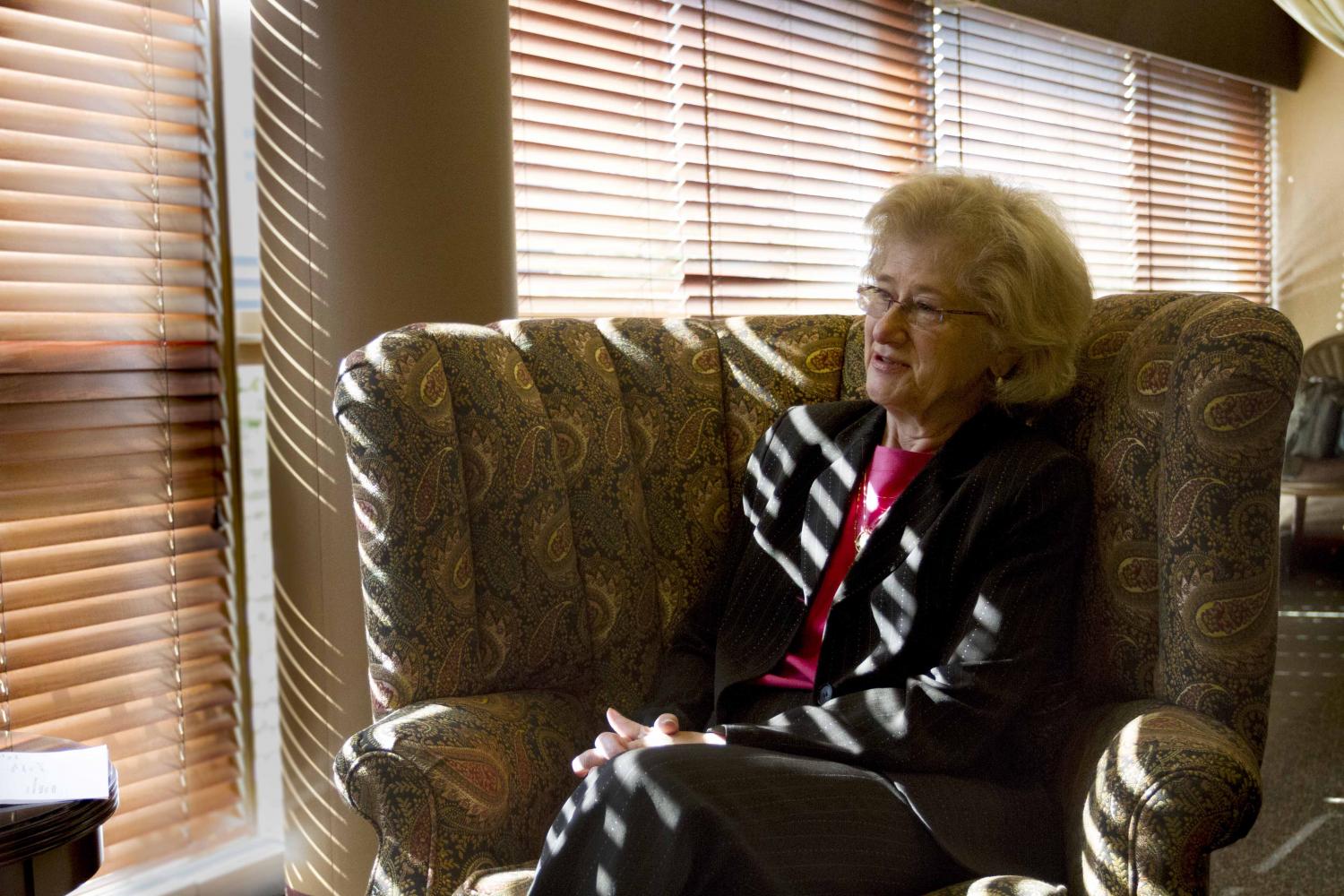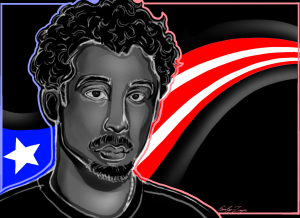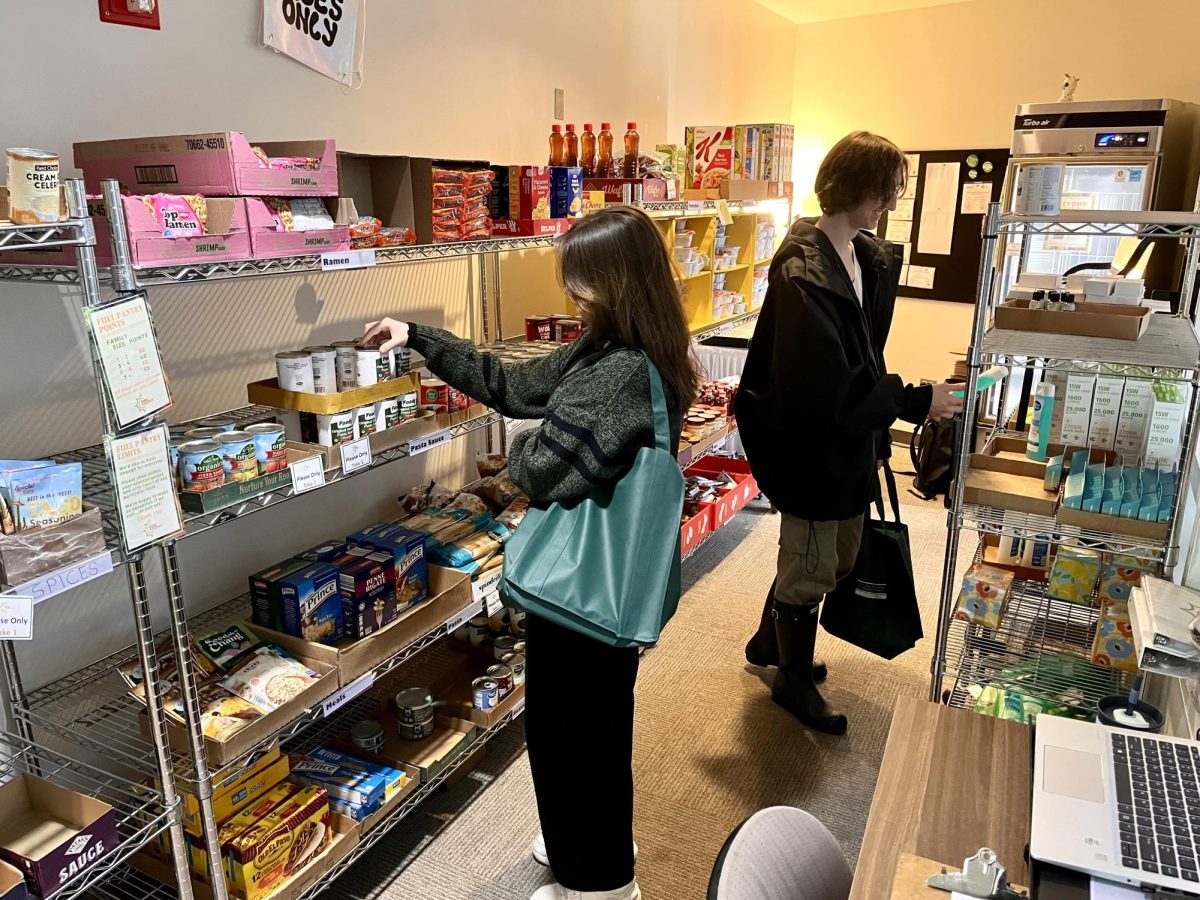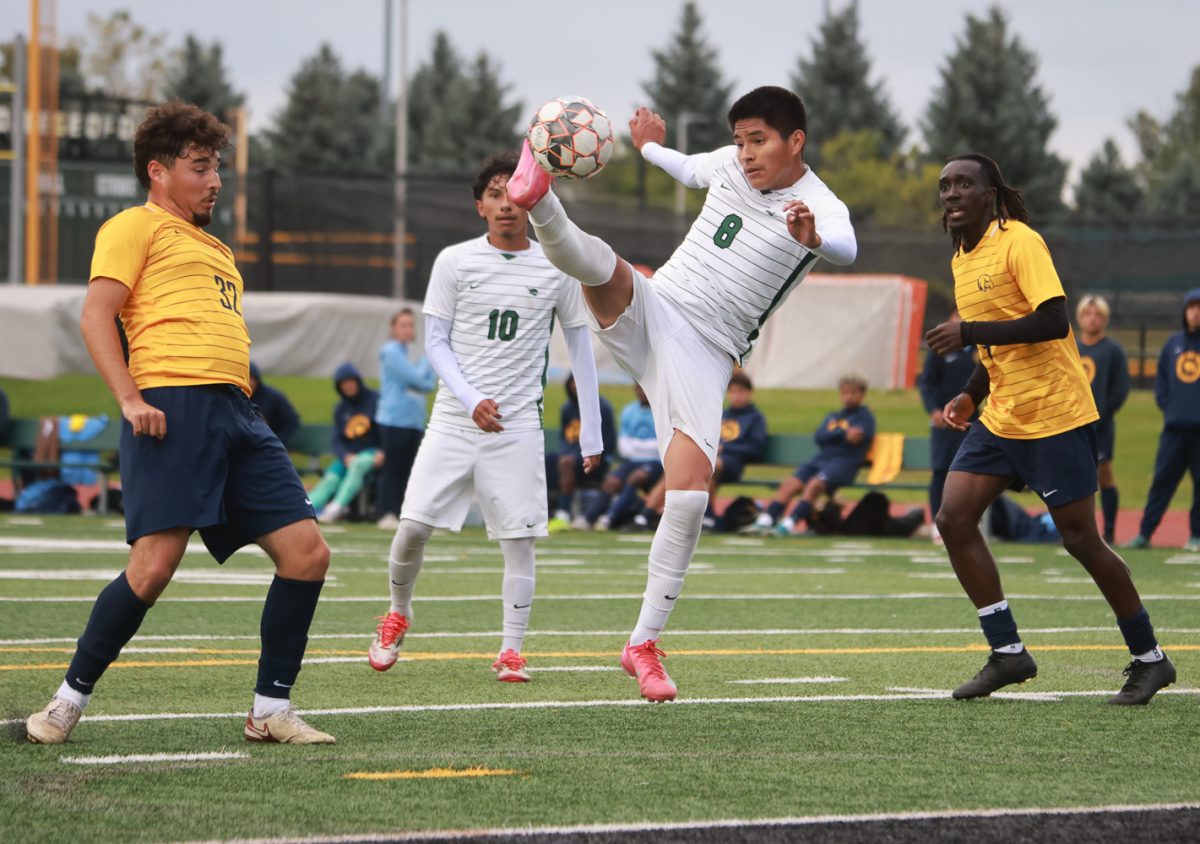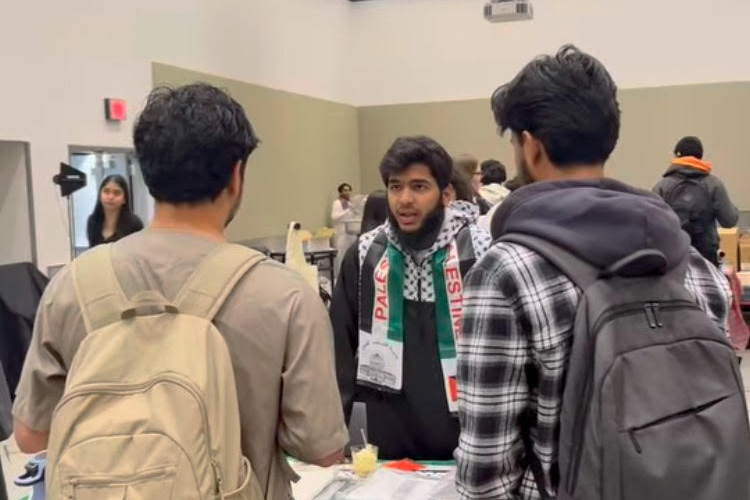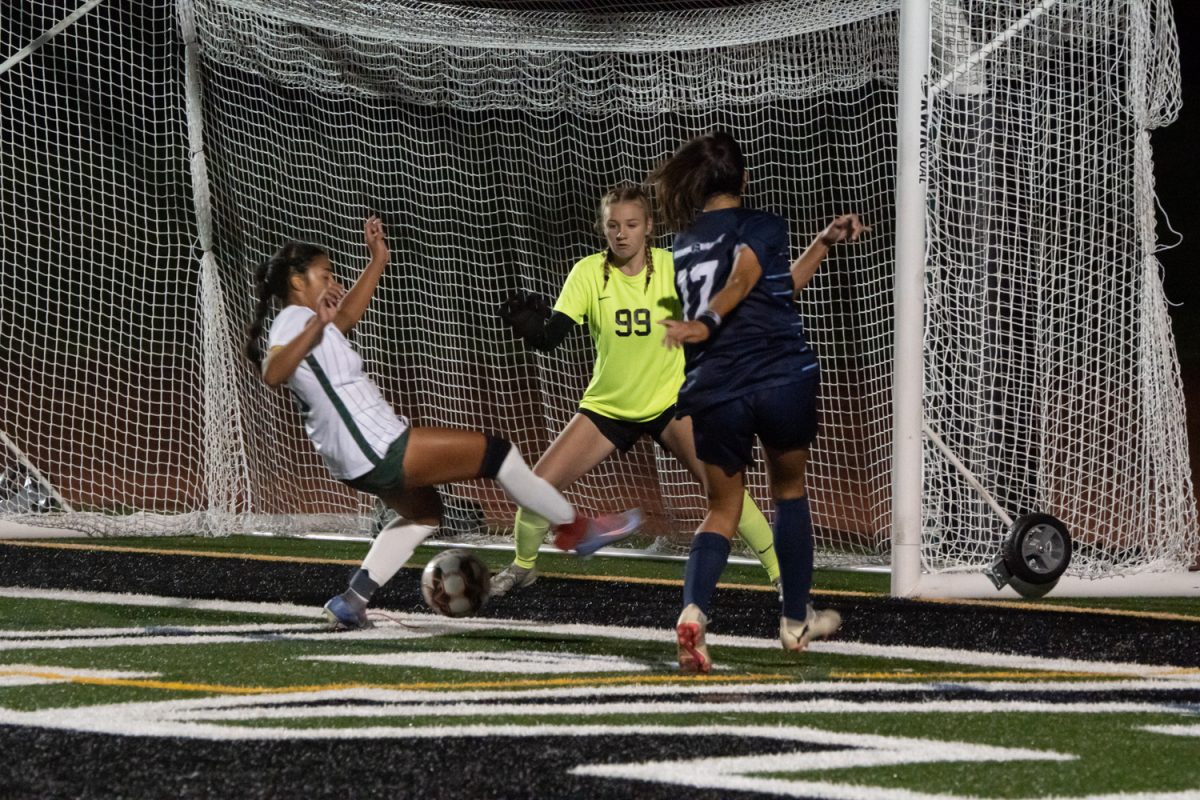Ann Rondeau talks about her first academic year as president, and what she has in store for the college
President Ann Rondeau
August 29, 2017
To mark the beginning of Ann Rondeau’s second year as College of DuPage president, the Courier sat down to discuss the progress the college has made: from academic affairs, adherence to the Higher Learning Commission’s recommendations to have COD’s accreditation status settled, and the stability the college has experienced under the Rondeau-led leadership.
Vandy Manyeh: What has been your biggest accomplishment since becoming president of COD?
Ann Rondeau: In the first year, we had a couple of things to do. One is to keep an exquisite focus on HLC, getting off of probation and maintaining our accreditation and moving forward. We did that. We have been focused on HLC. No. 2 was to just get things settled down, and get into a good place so that people were feeling stabilized and the environment was stabilized. The third thing was to laugh more; just to enjoy each other more, trust each other more, have a sense of each other’s confidence, have people breathe more easily and to have a sense that we are moving forward. I think we’ve done those things, and now I think this year is going to be about students’ success, students’ success, and students’ success. What that means is we will continue with the HLC, and we have some improvements to make. They identified some areas that we have to do further improvements on; we have to do that. We have some areas of what we learned from Noel-Levitz (“A provider of technology-enabled solutions and services for enrollment.”) and some surveys that we can improve on. And then working on things like assessments – measuring and understanding what the data is telling us.
VM: How do you feel being president of COD, the second largest provider of higher education in Illinois?
AR: You cannot imagine how extraordinarily privileged I feel. I was privileged to come on board. This is a great place. It is great physically. It is great with our students and faculty. Look at our finances – we are in a great shape financially. We are not in the same place like some of our peer institutions. This is where I am meant to be. It was a calling for me to be here, and I will always have this as a very special place. I think this was a place I was meant to come to after my other experiences. This is the culmination, not the end state of something. All those other things that came before prepared me for now so that I can give the best I can to all of you.
VM: What is the current relationship like between Dr. Rondeau and the faculty?
AR: Excellent. We have a brilliant faculty, and there’s no question about that. There is always business to do, and there is always things and business to attend. There will be people who don’t always agree on the same things, but what I’m sure of is the integrity, the confidence and the competence of people talking to each other as professionals do. Where we don’t agree with each other, that’s perfectly fine. We have those kinds of discussions and come to a good place, and where we agree with each other we move fast and well. I don’t know whether the students know that this is a brilliant faculty; it is high end. This is a faculty that’s dedicated to one thing. And that’s happening in the classrooms. There’s not a lot of distractions. They love their discipline, and they are excited to share it with you all. They are focused on your learning. This is a great treasure.
VM: The college signed a new agreement with the village of Glen Ellyn in April of this year. What has been the benefits of that agreement?
AR: Colleges should be able to get along with the town in which they are, and we had some difficulties with the Village of Glen Ellyn that went on for too long. That is just not good because taxpayers want us to get along with each other. Taxpayers, residents and voters intend for that to happen. Yes, it is important for the town in which we are and the college. And also for a second reason. One, you should. Two, it brings great financial benefit to us and to them. We are now doing some innovative work called Innovation DuPage that will be looking at how we can help the entire district and county with business innovation. And this is all going to be at College of DuPage in the Village of Glen Ellyn. Thirdly, good governance. The village leaders of Glen Ellyn and the board of trustees of the College of DuPage can easily talk to each other and come to some agreements. We share common roads. We have common facilities. We have those kinds of common things. So it is better for us to talk together.
VM: During your first year, you signed two transfer agreements – one with Northern Illinois University and the other agreement with the University of Illinois-Chicago. What are you going to do about having more transfer agreements between COD and other universities in Illinois?
AR: As you know, we had one for several years with the UIC engineering department. It’s the pathway into UIC’s engineering disciplines. We’ve got a long-term one with Elmhurst College and Benedictine University. We have a reverse transfer with NIU; that is if you go to NIU in the case of the former editor-in-chief (Lucas Koprowski) of the Courier Newspaper. If you go there, even if you haven’t gotten your degree out of here, once you get enough credit hours, we will then send you an associate’s diploma because you have earned the credits. Frankly, you know we have this cool thing going that we are working on a transfer agreement with the University of West London. We are looking at an international transfer agreement with the University of West London that began with Professor Theodore Darden who worked with them in Criminal Justice disciplines. They look a lot like us in some ways although they are a four-year school. It will be terrific if we can get that done by next year. We are looking at this year a little bit. Some things can happen as to how long it takes to get things done. We are very excited about that. We are doing well. We are doing it with as many schools that make sense in Illinois, and we are doing it with the University of West London also.
VM: The night your contract was approved, former Trustees Dianne McGuire and Erin Birt were absent. Trustee Joseph Wozniak also abstained from a vote to have your contract approved. Now, it seems like the board and Ann Rondeau are on the same page. What have you done to improve the relationship between the board of trustees and the president?
AR: One of the first things I did was to have the administrators separate from the board of trustees at board meetings. It happened to be that the president was sitting with the board of trustees. The board of trustees is the legislature; they are voted in by voters. They are elected officials. The administration is like the executive branch. So when you begin making that distinction, you begin to clarify roles, and so that’s really important for trust and transparency. Their role is to legislate, oversee and give us our policies. Our role is to execute, make it happen and to administer. So the first thing you do is clarify roles. The second thing you do is have a forthright conversation. This is a board where I can have forthright conversations, it is professionally engaged and we talk about things. It is just respect, respect for each other, respect for the voters and college, respect for the students and knowing that your first mission is students’ success. Everything else is secondary and tertiary. Once you have that common understanding, you can do a lot of things. But trust is very important, I cannot overemphasize that. We are not there entirely with the whole school, but we are better than we were. It’s fragile, but it is real.
VM: The Board of Trustees in June approved a 2.6-percent salary increase for you. Do you see that as a pay for a job well done?
AR: I’m not kidding you when I say that payment for a job well done is your success. So that’s my first reward; it’s making sure that we have people leaving here healthy in every way and better. To the specific business question: it is the same as everybody else has gotten, and so I didn’t want any more than that, and I didn’t even ask for that. It was fair for the board to do it. It’s a business question, and the answer is I got what everybody else got.
VM: Do you have anything else to say?
AR: How much I appreciate the Courier. There have been some articles in the Courier that I’ve had to call out. I showed it to my faculty and asked what are we doing about this, how do we feel about it, but I want to be able to discuss. So what the Courier has been for me is, it is an expression of the students’ voice. At times, I agree with some articles, at times I don’t, at times it has been substantive, at times stylistic, whatever it is; the Courier has been a voice. SLC is a voice. The student trustee is a voice. Now you have a student on the board. Seeing students and talking to you all is a voice. Your clubs are a voice, but the Courier is a written voice that has been formulated and thought about. I want to thank the Courier. I truly mean that. You’ve been able to help me be better because of letting me see some of your worlds through your eyes. I even read about the music you write about, and some of the movies and the artists. Thanks.



